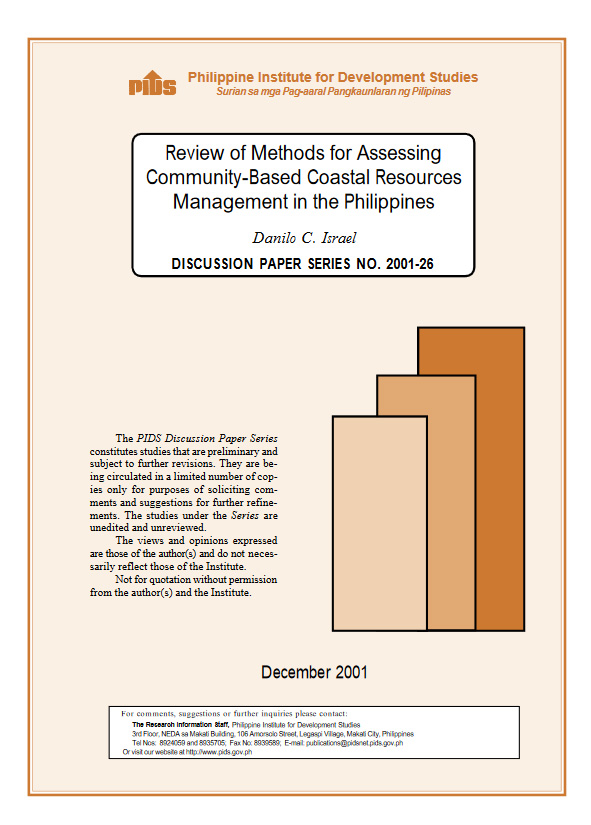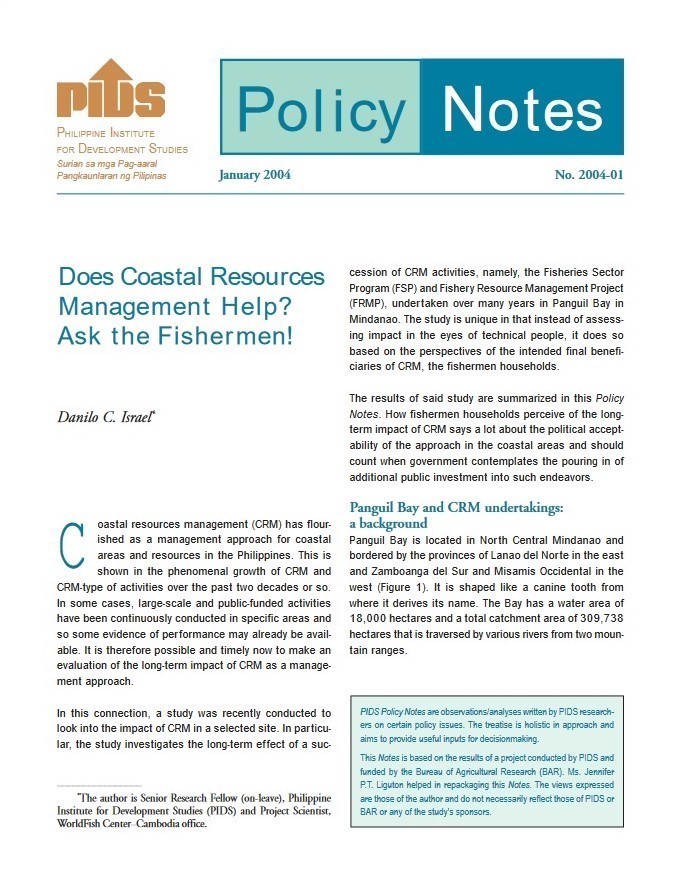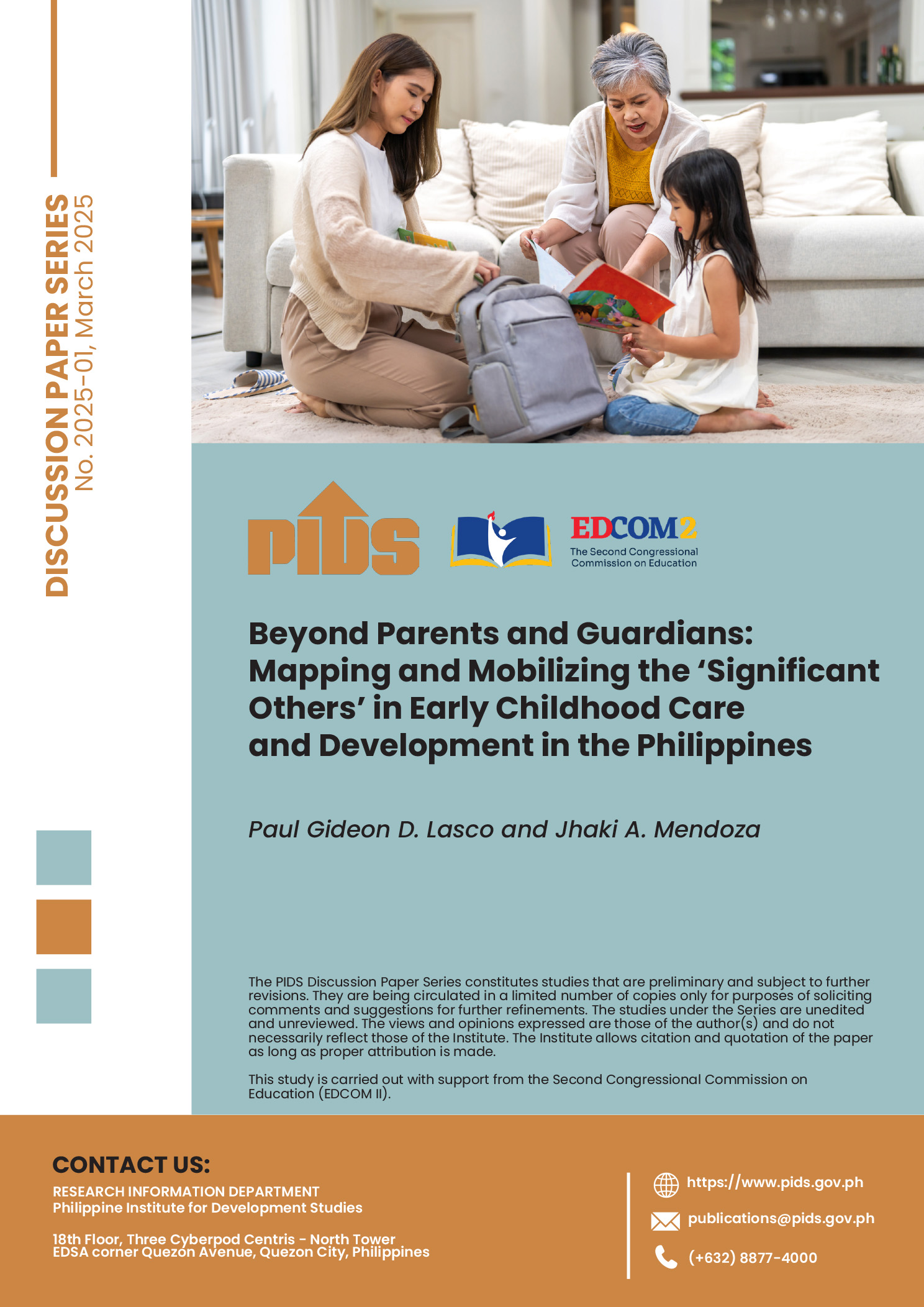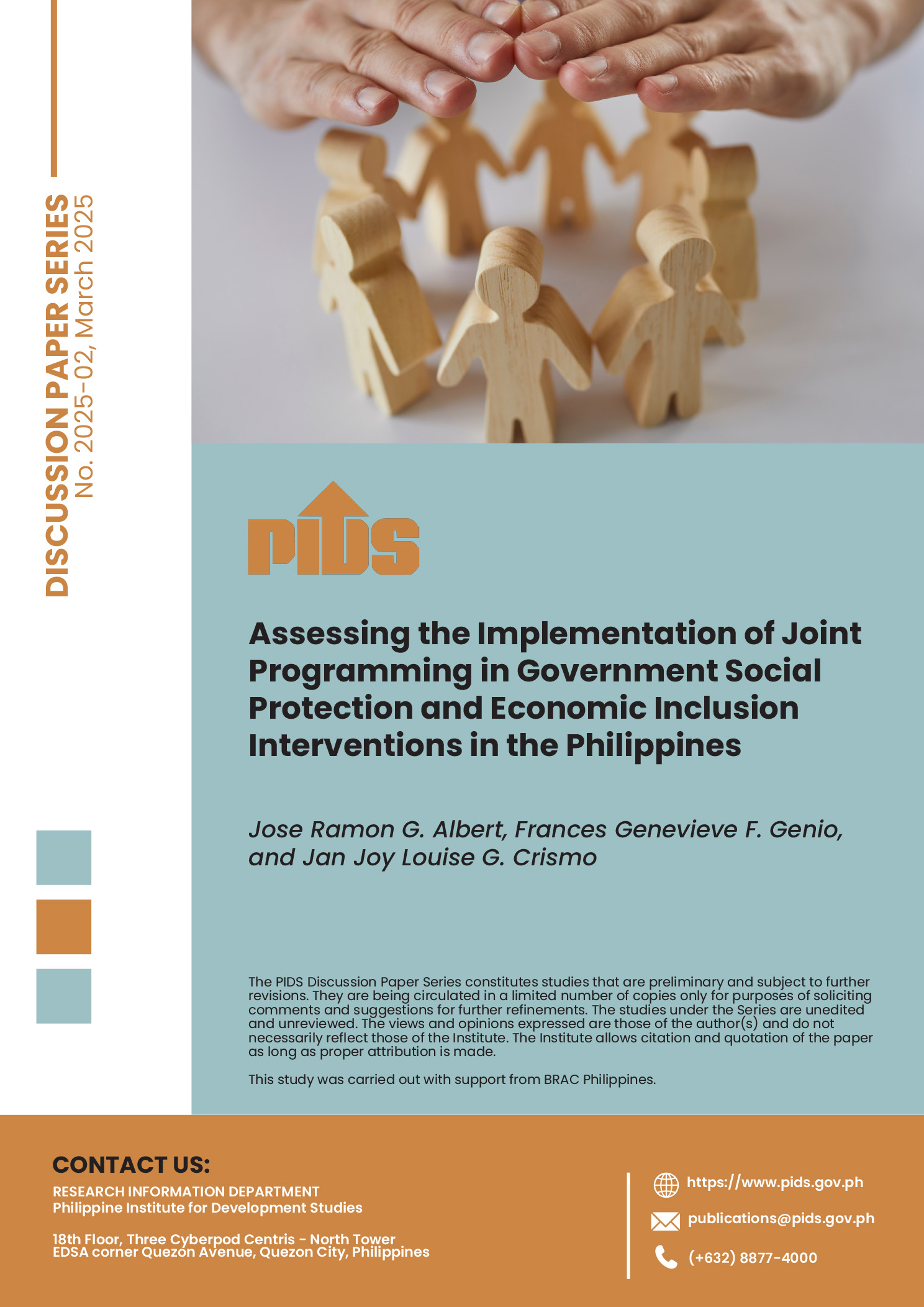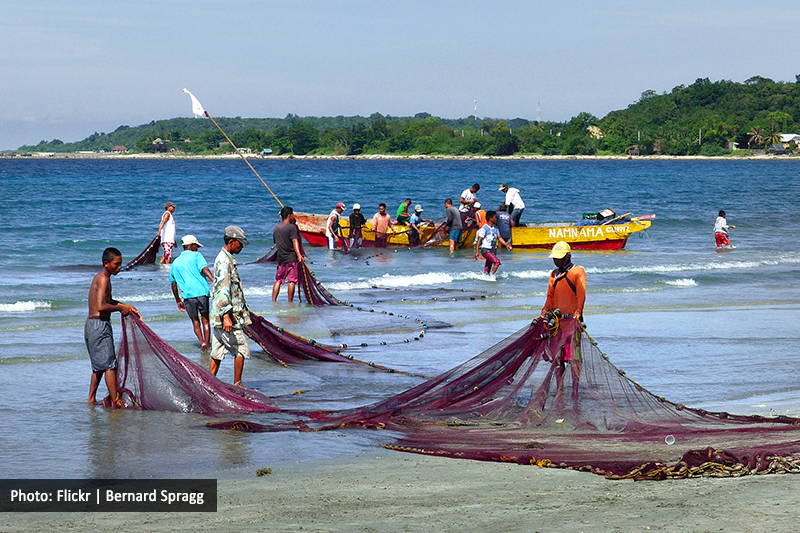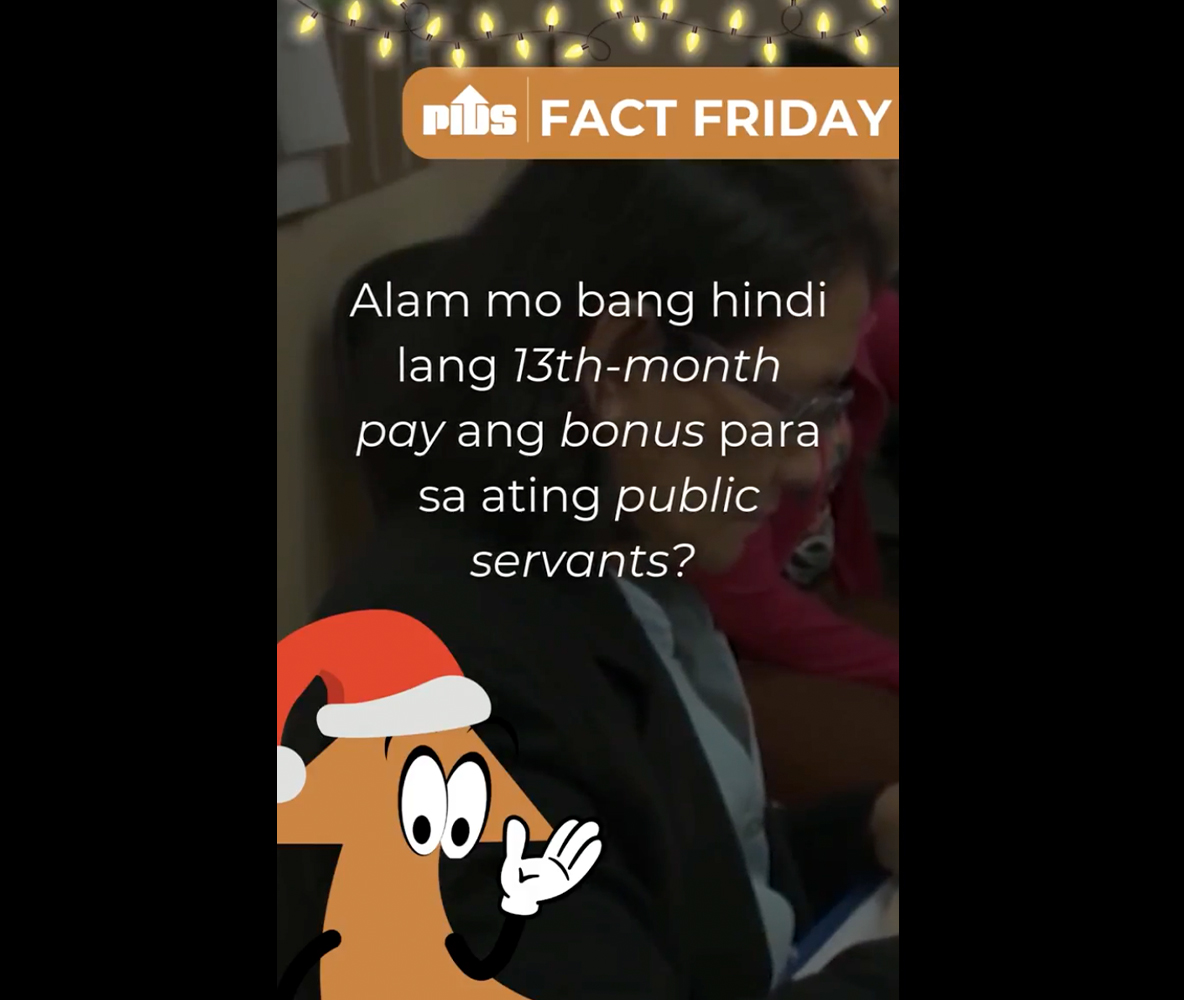Community-Based Coastal Resources Management (CBCRM) activities in the Philippines have phenomenally increased over the years while studies that assess their performance were few. This paper reviews the literature dealing on the evaluation of CBCRM and the methods they applied with the end view of generating useful information for the possible development of a common methodology for future work. The paper found that most of the studies evaluating CBCRM dealt only on individual projects or project sites. They either used simple descriptive statistics comparing actual performance against pre-set objectives or more quantitative methods, particularly the Baseline-Independent Technique and the Institutional Analysis Approach. The limited number of studies at present suggests that CBCRM is under-assessed as a management method. A reason is that methodologies for the purpose are not yet fully developed and familiar to researchers. This renders methodology development a priority research concern. The study further found that at the level of individual projects, many CBCRM activities have been successful in the pursuit of at least some of their activities. This implies the great potential of the approach for helping solve the various problems in coastal fisheries. That CBCRM has limited coverage nationally, involves only a small proportion of the population, and generally disregards the interests of other sectors like commercial fishers means that much can be done to improve on the approach and make it a true vehicle of coastal fisheries development.

